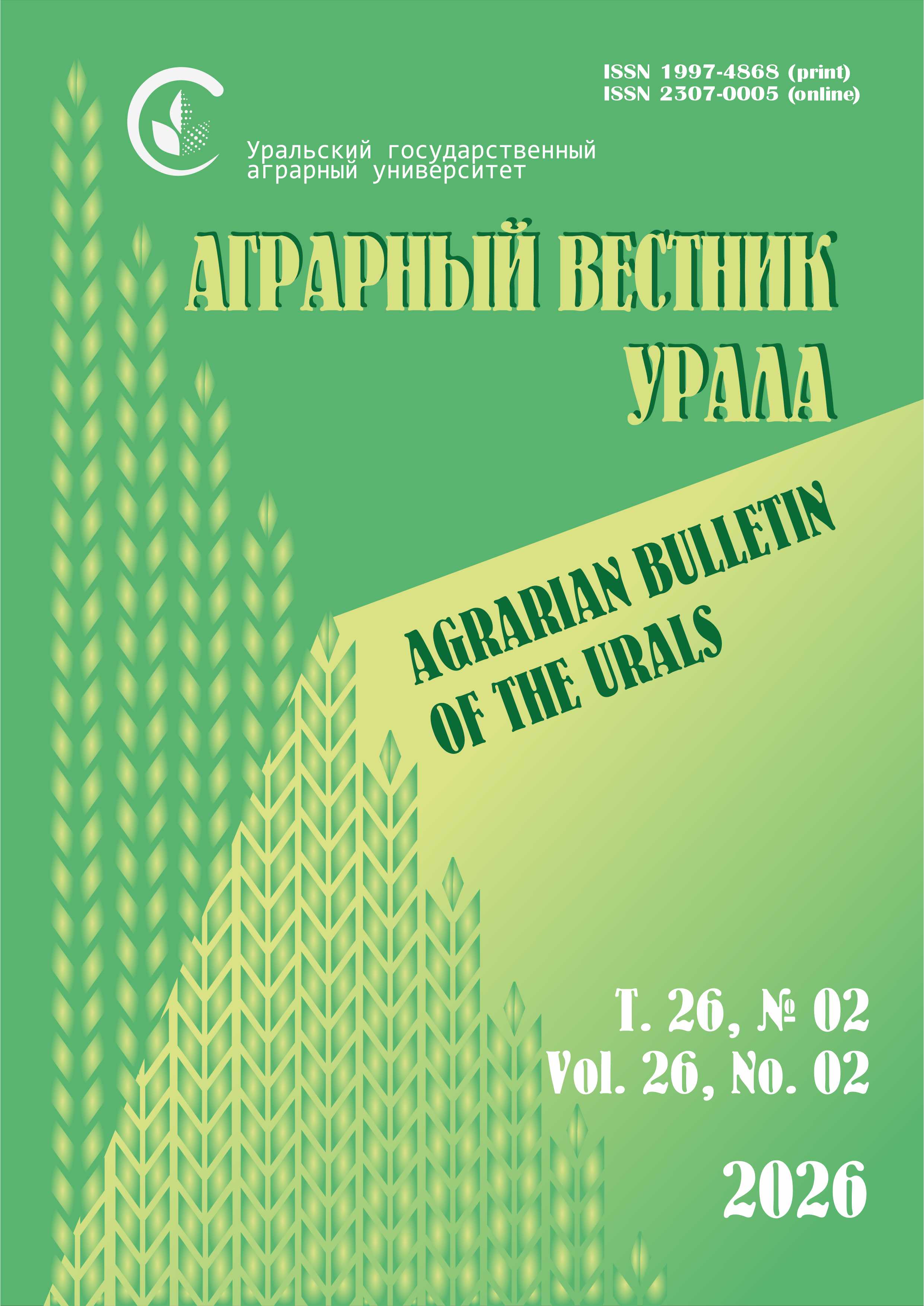I. Yu. Lebedeva, O. S. Mityashova, E. K. Montvila, O. V. Aleynikova, A. A. Smekalova L. K. Ernst
Federal Research Center for Animal Husbandry, Dubrovitsy settlement, Moscow region, Russia
E-mail: This email address is being protected from spambots. You need JavaScript enabled to view it.
Volume 25 No. 3
Date of paper submission: 13.12.2024, date of review: 03.02.2025, date of acceptance: 18.02.2025.
Published: 03/31/2025
Abstract. The purpose of the presented work is to characterize in vitro the effect of triiodothyronine (T3) on the expression of proapoptotic protein Bax and antiapoptotic protein Bcl-2 in granulosa cells of laying hens in connection with the age-related decline in egg production. Research methods. The study was performed on laying hens aged 29–32 weeks with a long egg-laying cycle (n = 6) and 69–84 weeks with a short egg-laying cycle (n = 6). The two largest preovulatory follicles F1 and F2 were used in the experiments. The cells isolated from the follicles were cultured in the medium containing 10 % fetal bovine serum. After the formation of the monolayer, this medium was replaced with the serum-free medium and the cells were cultured for 48 h in the presence of T3 at a concentration of 0.5–8.0 ng/ml or without T3 (control). The expression of target proteins in follicular cells was assessed by immunocytochemistry using primary antibodies to Bax and Bcl-2. Results. When culturing granulosa cells from F1 follicles of young hens, the addition of T3 (1.0–8.0 ng/ml) to the medium led to a 1.1-fold (p < 0.01...0.05) increase in the proportion of cells with the positive reaction to Bax and Bcl-2, compared to control, but did not affect this proportion in the case of F2 follicles. In hens with the age-related decline in egg production, T3 increased 1.1–1.2 times (p < 0.01...0.05) the Bax expression in the granulosa cell culture from follicles of both categories, but only at a concentration of 8.0 ng/ml. In addition, when exposed to T3 (8.0 ng/ml), a 1.1-fold (p < 0.05) increase was found in the proportion of Bcl-2-positive cells from F1 follicles compared to control. Scientific novelty. For the first time, a decrease in the sensitivity of granulosa cells of the largest preovulatory follicle to the regulatory effect of T3 on the expression of Bcl-2 family apoptosis markers in middle-aged hens at the end of the first productive period was shown.
Keywords: laying hens, triiodothyronine, preovulatory follicles, granulosa cells, apoptosis, Bcl-2 family proteins
Acknowledgments. The study was supported by the Russian Science Foundation (No. 22-16-00149).
For citation: Lebedeva I. Yu., Mityashova O. S., Montvila E. K., Aleynikova O. V., Smekalova A. A. The effect of triiodothyronine in vitro on the expression of apoptosis regulators of the Bcl-2 family in granulosa cells of laying hens of different ages and reproductive statuses. Agrarian Bulletin of the Urals. 2025; 25 (03): 459‒472. https://doi.org/10.32417/1997-4868-2025-25-03-459-472 (In Russ.)
Download the full text of the article












